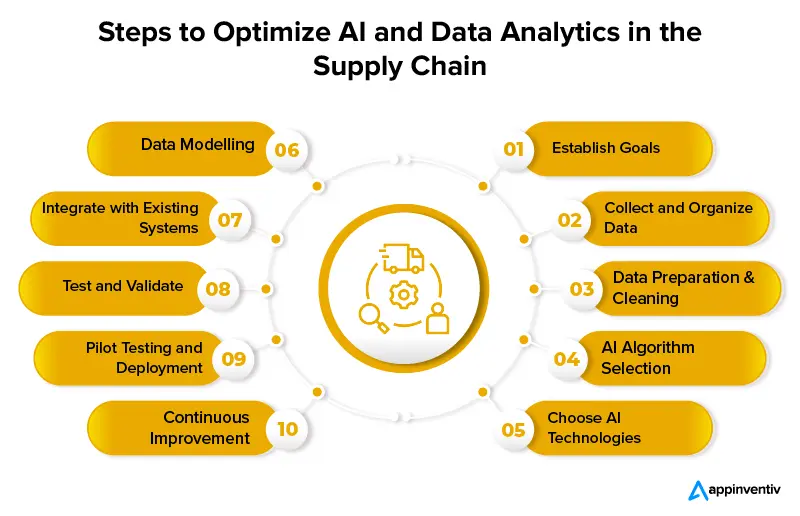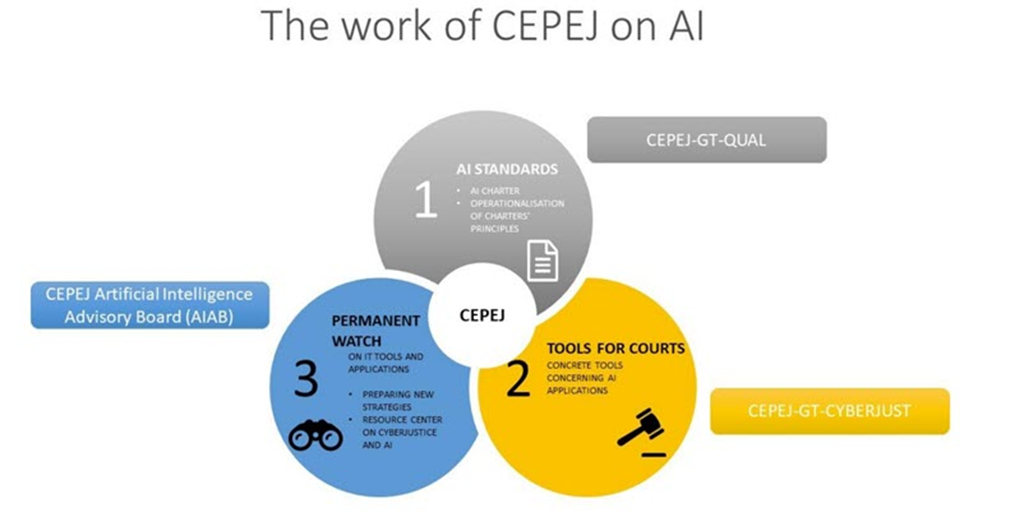Introduction
The world of supply chain management has never been more complex. As businesses expand globally and consumer demands become more dynamic, the need for agile, efficient, and resilient supply chains has grown exponentially. Fortunately, technology has risen to the occasion, and one of the most significant breakthroughs in recent years is the integration of artificial intelligence (AI) into supply chain management.
In this blog post, we will explore how AI is reshaping the landscape of supply chain management, enhancing efficiency, and bolstering resilience in the face of disruptions.
The Role of Supply Chain Management in Modern Business
Before delving into the impact of AI, it’s crucial to understand the vital role supply chain management plays in today’s business environment. A supply chain encompasses the entire journey of a product, from raw materials to manufacturing, distribution, and finally, reaching the hands of the end consumer. The efficiency and effectiveness of this journey directly impact a company’s competitiveness and profitability.
Here are a few key aspects of supply chain management:
Efficiency: Streamlining operations and reducing waste in the supply chain helps businesses lower costs and offer competitive pricing to consumers.
Resilience: The ability to adapt to unexpected disruptions, such as natural disasters or global pandemics, is crucial to maintaining business continuity.
Customer Satisfaction: Timely delivery, accurate tracking, and product availability are essential for meeting customer expectations and building brand loyalty.
Cost Control: Efficient supply chain management can help control overhead costs, ensuring that businesses remain profitable.
AI’s Transformative Role in Supply Chain Management
Artificial intelligence has brought a new dimension to supply chain management, revolutionizing how businesses operate. Here’s how AI is making a significant impact:
Predictive Analytics: AI algorithms can analyze vast datasets to predict demand fluctuations accurately. This allows companies to optimize inventory levels, reducing carrying costs and preventing stockouts or overstock situations.
Real-time Monitoring: AI enables real-time tracking of shipments and inventory levels. This visibility helps businesses make informed decisions, ensuring products are in the right place at the right time.
Route Optimization: AI algorithms can calculate the most efficient routes for transportation, reducing fuel consumption and transportation costs.
Demand Forecasting: AI can analyze historical data and market trends to generate accurate demand forecasts. This helps businesses adjust production schedules and procurement accordingly.
Quality Control: AI-powered systems can monitor product quality during manufacturing, reducing defects and minimizing waste.
Enhancing Resilience in Supply Chains
The global supply chain faced an unprecedented challenge during the COVID-19 pandemic. Lockdowns, disruptions in transportation, and workforce shortages highlighted the need for resilient supply chains. AI can contribute significantly to building this resilience:
Risk Assessment: AI can assess various risks, including geopolitical, environmental, and economic, and provide insights to help businesses mitigate potential disruptions.
Scenario Planning: AI can simulate various scenarios, enabling businesses to develop contingency plans for different types of disruptions.
Supplier Diversification: AI can identify alternative suppliers and assess their capabilities, reducing reliance on a single source.
Inventory Optimization: AI-driven demand forecasting and inventory management can help businesses maintain essential stock levels during supply chain disruptions.
Adaptive Logistics: AI can dynamically reroute shipments and adjust transportation modes in response to real-time disruptions, ensuring products reach their destination.
Real-world Applications
AI’s impact on supply chain management extends to various industries:
Retail: Retailers use AI to optimize inventory, personalize recommendations, and forecast demand for seasonal products.
Manufacturing: Manufacturers employ AI for quality control, predictive maintenance, and optimizing production schedules.
Logistics and Transportation: Companies in this sector use AI for route optimization, vehicle maintenance scheduling, and real-time tracking of shipments.
Healthcare: AI is crucial for managing the complex supply chains of pharmaceuticals, medical devices, and vaccines, especially during times of high demand.
Challenges and Considerations
While AI holds immense promise for supply chain management, there are challenges to consider:
Data Security: The vast amount of data involved in supply chains requires robust cybersecurity measures to protect sensitive information.
Integration Complexity: Integrating AI into existing supply chain systems can be complex and require significant investments in technology and training.
Ethical Concerns: As AI becomes more prevalent, ethical considerations surrounding data use, decision-making transparency, and job displacement must be addressed.
Regulatory Compliance: Adherence to data privacy and international trade regulations is essential for businesses operating globally.
Conclusion
AI is transforming the world of supply chain management, offering unprecedented opportunities to improve efficiency and build resilience in the face of unforeseen challenges. As businesses continue to navigate an increasingly complex global landscape, those that embrace AI-powered supply chain solutions are poised to thrive. The synergy between human expertise and AI’s capabilities promises to drive innovation and enhance the way we manage the flow of goods from production to consumption.
In an era of global commerce, AI is the catalyst for more efficient and resilient supply chain management. Its ability to predict, adapt, and optimize has redefined how businesses operate, ensuring products reach their destination seamlessly and withstand unexpected disruptions.





